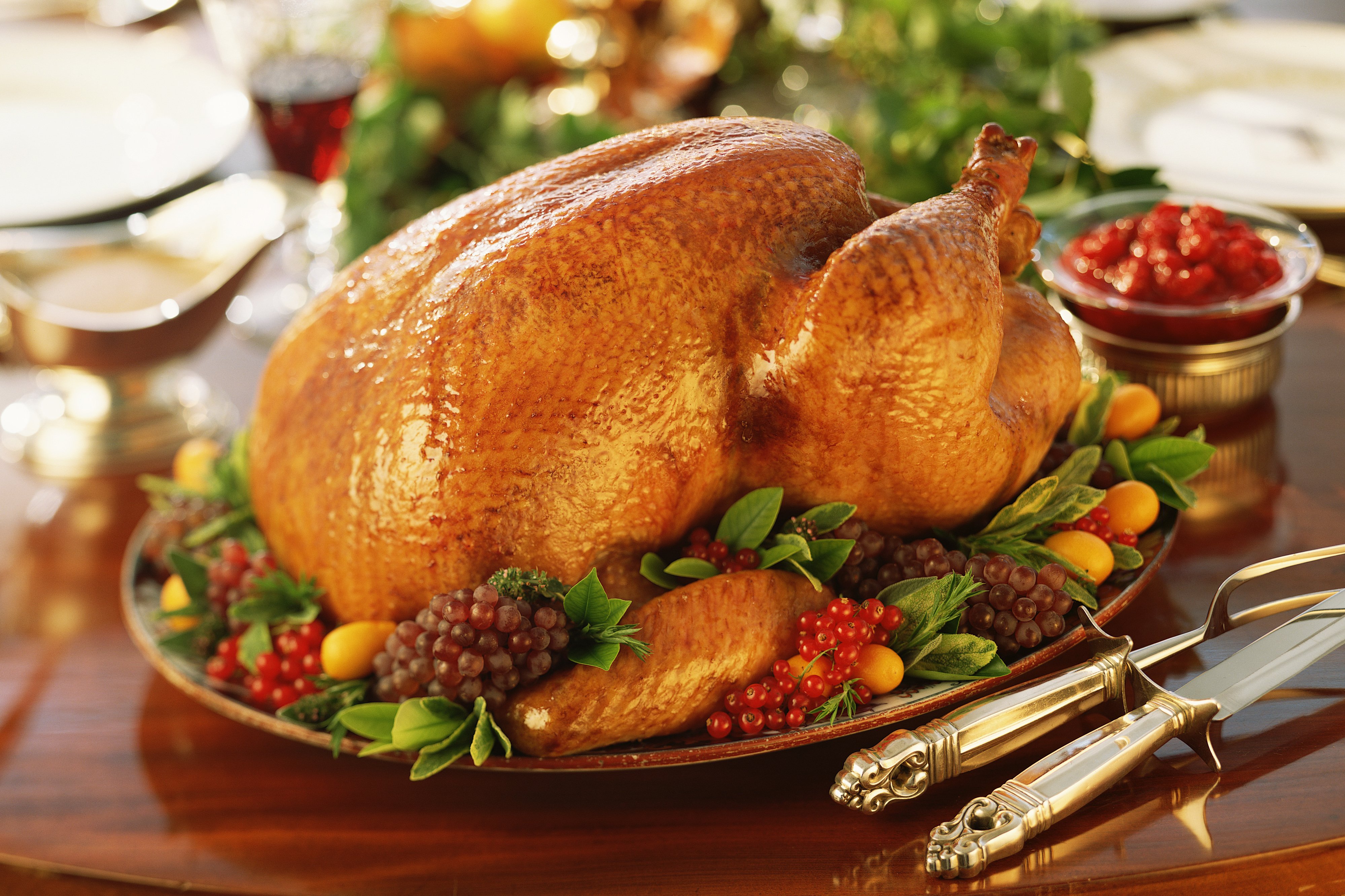Consejos para una alimentación segura en estas fiestas
Está llegando la navidad y muchos se reunirán en sus hogares con sus seres queridos y sus comidas favoritas. Se urge a las familias seguir los siguientes consejos a la hora de preparar los alimentos en estas fiestas.
“El centro para el control y prevención de enfermedades estima que cada año 1 de cada 6 americanos se intoxica con comidas en las fiestas”, dijo Peter Muriana, microbiólogo de la universidad estatal de Oklahoma. “Si bien los alimentos para la venta en Estados Unidos, son de los más seguros del mundo, deben ser manipulados correctamente para evitar la contaminación por bacterias y la intoxicación”. Muriana nos ofrece los siguientes consejos para asegurarnos de que las comidas estén deliciosas y sanas:
Compre con cuidado los alimentos. Las carnes entre 1 y dos días antes de cocinarla, debe estar separada en bolsas de los otros productos frescos. A la hora de comprar pavo fresco hay que ser extra cautos porque puede tener más bacterias en el relleno. Lo último que hay que agarrar en el supermercado es la carne, la leche, los huevos y todo lo de granja.
Diseñe un plan magistral considerando dónde se guardarán los alimentos, en el freezer, el refrigerador y en el horno. Hay que cocinar todo a más de 140 Fahrenheit, y enfriar a menos 40. Si usa heladeritas debe colocar hielo bien limpio y evitar que se derrita.
Lávese las manos regularmente, antes, durante y después de manipular alimentos, siempre con jabón hasta las muñecas y entre los dedos por al menos 20 segundos.
Evite la contaminación cruzada, tenga tablas de corte separadas, una para carnes crudas y otra para vegetales y frutas.
Lave todos los productos frescos, deje fruta y verduras en agua corriente y saque la tierra con un pincel, recuerde lavar hasta lo que viene empaquetado.
Cuidado al descongelar carnes, en el refrigerador el descongelamiento tarda unas 24 horas, y si no hay que sumergirlo en agua fría unos 30 minutos por libra de carne.
Cocine con termómetro para verificar la temperatura y evitar la contaminación con bacterias. Todas las carnes rellenas deben cocinarse al menos a 165 grados Fahrenheit para matar bacterias.
Deje a los invitados fuera de la cocina, pueden estar resfriados, probar los alimentos y dejar gérmenes en ellos. Sirva los appetizers en platos separados para entretenerlos antes de comer.
Refrigere las sobras ni bien termina la cena, todo en pequeñas porciones en contenedores pequeños, pueden comerse hasta 4 días después de cocinarse, si sobró mucho, freeze.
Si come las sobras, caliéntelas a más de 165 grados, si son sopas deben hervir al menos un minuto. No coma nada que huela extraño. Si tiene dudas, tírelo. (OSU)
Safety tips for holiday meals
The Christmas season is here, and many will be gathering around the dinner table devouring their favorite holiday meals.
Families are urged to keep food safety tips in mind when preparing those holiday meals.
“The Centers for Disease Control and Prevention estimates each year about 1 in 6 Americans get sick from foodborne diseases,” said Peter Muriana, Oklahoma State University food microbiologist. “While the U.S. food supply is one of the safest in the world, food safety during the holidays is a must in order to prevent bacteria from growing and causing illness.”
Muriana suggests the following food safety tips to ensure your holiday meal is not only delicious, but also safe.
Shop for holiday foods safely. Buy your meat preferably 1 to 2 days before you cook it, and keep the meat separated from the fresh produce when bagging. Extra caution should be used when buying fresh, stuffed turkeys because of the potential for bacteria growth in the stuffing. Pickup the meat, dairy, eggnog and eggs just before checking out.
Develop a master plan. Take into consideration your refrigerator, freezer and oven space to keep hot foods at 140 degrees Fahrenheit or higher and cold foods at 40 degrees Fahrenheit or below. If you use coolers, make sure you have plenty of clean ice and check it frequently to make sure the ice has not melted.
Wash hands often. Wash hands before, during and after food preparation to minimize bacterial contamination. Wash with hot water and soap up to your wrists and between your fingers for approximately20 seconds.
Separate to avoid cross contamination. Use two cutting boards: one for preparing raw meat, poultry and fish, and the other for cutting fruits and vegetables, cooked food or preparing salads.
Wash all fresh produce. Rinse fruits and vegetables thoroughly under cool running water and use a produce brush to remove surface dirt. Even wash prepackaged greens to minimize bacterial contamination.
Thaw frozen meats safely. Defrost meats in the refrigerator for approximately 24 hours, depending on size, or submerge meat in its original package in a pan of enough cold water to cover the meat. Allow 30 minutes thawing time for every pound.
Cook to proper temperature. Use a thermometer to make sure food has been cooked enough to kill bacteria. Turkey, stuffing, side dishes and all leftovers should be cooked to at least 165 degrees Fahrenheit.
Keep guests out of the kitchen. Holidays occur during cold and flu season, and preventing guests from sampling the food while it is being prepared limits the amount of germs getting on the food. Serve appetizers to give guests something to nibble on until the meal is ready.
Refrigerate leftovers. Leftovers should be divided into smaller portions, stored in several shallow containers and refrigerated within two hours after cooking. Leftovers should be eaten within3 to 4 days. If large amounts are left, consider freezing leftovers for later use.
Eating leftovers. Reheat leftovers to 165 degrees Fahrenheit throughout or until steaming hot. Soups, sauces and gravies should be brought to a rolling boil for at least 1 minute. Never taste leftover food that looks or smells strange. When in doubt, throw it out. (OSU)


 (1) (2).jpg)

